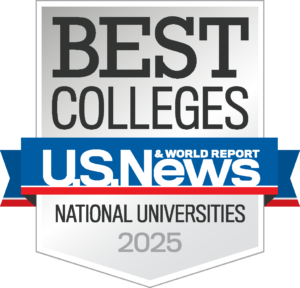
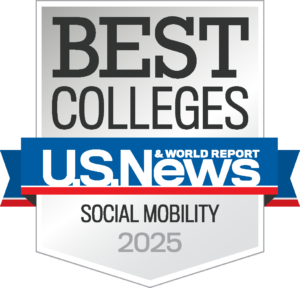
Jump to Section
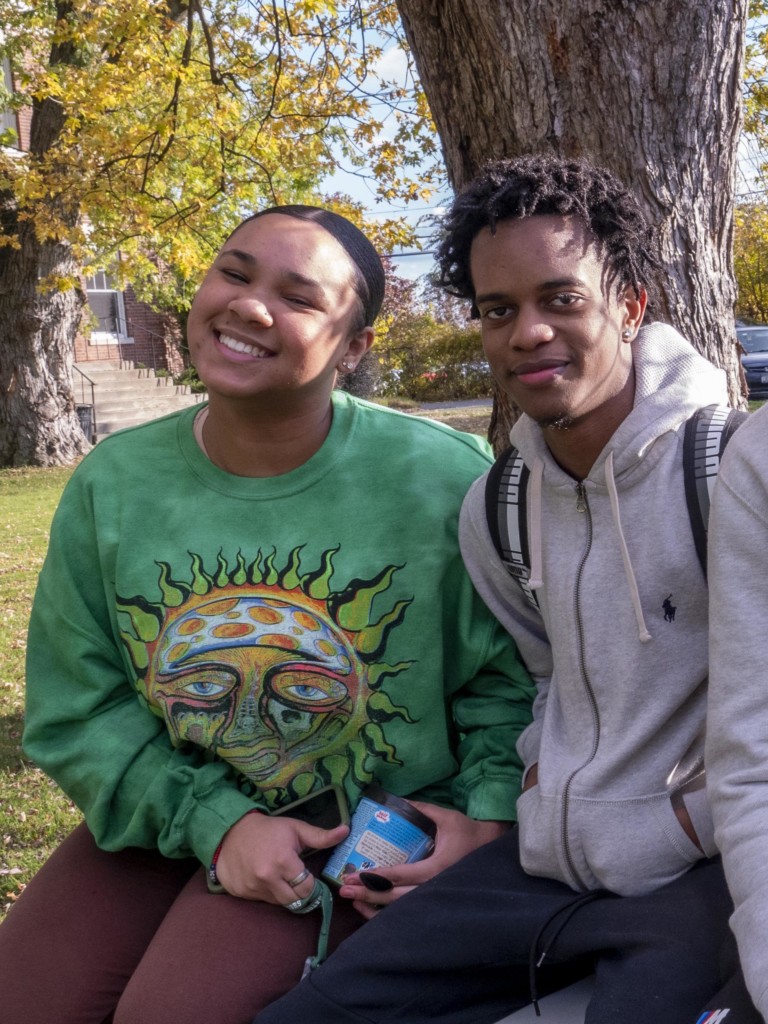
How Much Does It Really Cost?
The sticker price for undergraduate tuition at Russell Sage College is $38,262,
but you won’t pay that.
100%
of Russell Sage incoming full-time undergraduate students receive institutional, federal, or state financial aid.

How? Let’s do the math.
Merit and Institutional Scholarships
First-year students at Russell Sage College will receive merit and institutional scholarships that are based on their grades, and those scholarships for the 2025-2026 academic year range from $20,000 to $25,000.
Which means that after just your merit or institutional scholarships are applied, estimated tuition is $13,262 to $18,262 a year. You will continue to receive these scholarships for all four years of your undergraduate education at Russell Sage as long as you are full time and in good academic standing.
But that’s not all. Next step? Fill out the FAFSA.
You have to fill out your Free Application for Federal Student Aid (FAFSA) to receive a complete financial aid package from Russell Sage College (or any college or university you apply to). The FAFSA determines how much federal aid you qualify for based on your family’s income and other factors. Don’t forget to include the code for Russell Sage College when you complete your FAFSA. It’s 002810.
There’s also state aid available. If you are a New York state resident, don’t forget to complete your New York State Tuition Assistance Program (TAP) application. Our school code is 0675.
Financial aid varies from student to student because it’s based on a family’s specific financial circumstances. In addition to federal and state grants, Russell Sage may also award additional institutional funding based on your needs.
How to create an FSA ID if you do not have an SSN
How To Review and Correct Your FAFSA Form
Having technical troubles with the FAFSA site?

Submit your FAFSA:
The FAFSA for 25-26 is now available. Please submit if you have not already. Learn more about the FAFSA and the changes here.
The value of a Russell Sage education is the level of individual attention you’ll receive. That’s true of the financial aid process, too. We’re here to meet with you at any time – either in-person, virtually, or over the phone.
FAFSA code: 002810
FAFSA opens: Open now for 2025-2026 (new students starting in the fall)
NYS TAP code (for NYS residents only): 0675
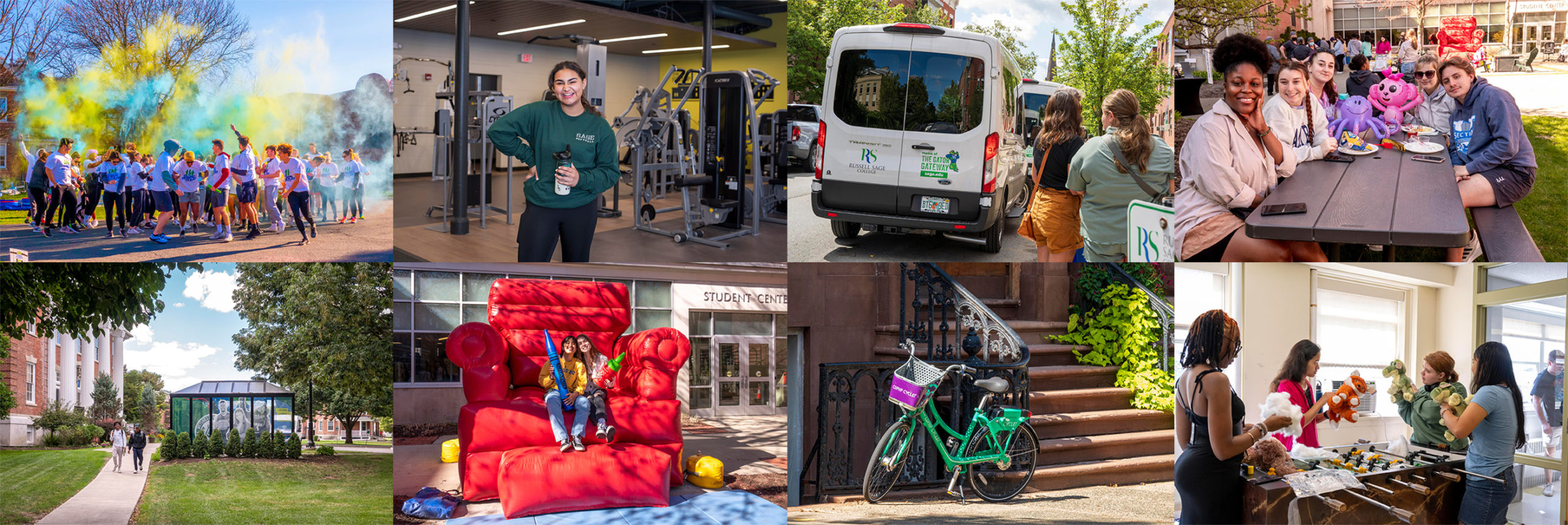
OK, what else do I have to consider when it comes to my investment?
Fees for service
Colleges and universities are their own communities where the services you need and enjoy are paid for by fees. Every full-time undergraduate student at Russell Sage pays a comprehensive fee of $1,550 a year. But that means:
- Visit the wellness center when you’re sick or in need of mental health counseling without paying for it or having it billed to your insurance.
- Work out in our multiple fitness centers, attend fitness classes, or join intramural teams and tournaments.
- Attend fun activities (often with food) on and off campus, including bus trips and discount show tickets. And join student clubs or student government.
- Have access to technology and library resources on campus and online.
- Have campus security watching out for you.
- Get a free parking permit.
- Enjoy shuttle service between our campuses and to the mall on weekends.
- Get a free pass for the city bus and bike-sharing stations.
Other fees: Additional fees may be charged based on your major and supplies needed. We like to be transparent at Russell Sage, and you can find more information on that on our tuition and fees pages.
Books: You should also be sure to budget for books and course supplies, which vary by major but average $600 per semester.
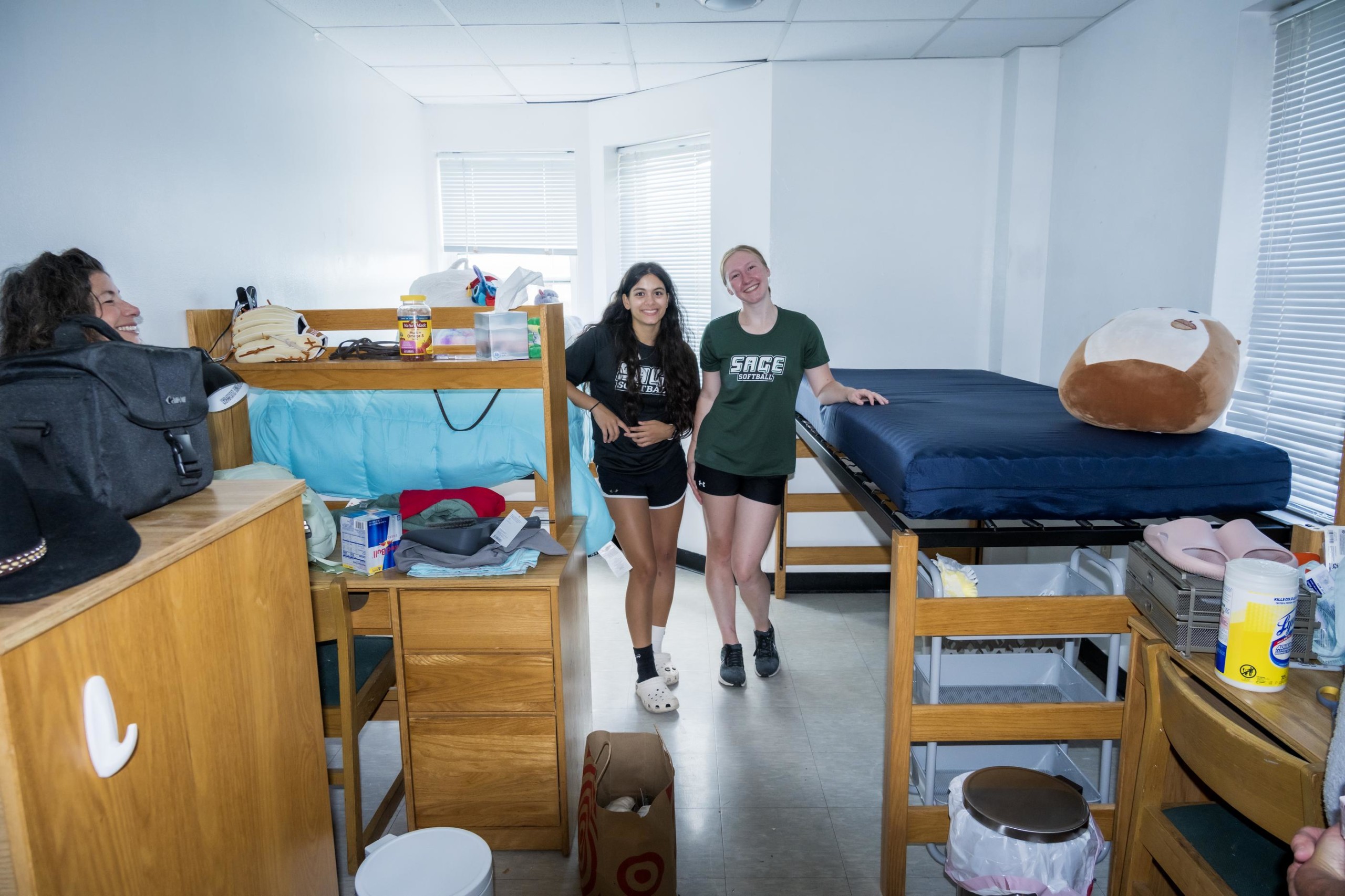

Your On-Campus Housing and Your Meals
If you choose to live on campus, you’ll pay for your room and meal plan. First-year students typically live on-campus or at home with their parents/guardians. See our housing policy for more details.
The 2025-2026 annual costs are:
- $6,752 to $7,252 a year for a double residence hall room
- $7,884 a year for your meal plan, which allows you to eat in any of our on-campus dining facilities
- Total: $14,636 to $15,136 a year
Affordable housing
As you’re thinking about affordability, you should note that our housing and meal plan costs at Russell Sage College are less than most public and private colleges, including the average cost of housing and meals at SUNY universities. Here are some examples:
| Housing and Meal Plan Annual Cost (Double room and highest meal plan option) | |
| Russell Sage College | $14,636 |
| Average SUNY* | $16,513 |
| Capital Region Private College | $17,085 |
| Central New York Private College | $16,210 |
| Hudson Valley Private College | $18,330 |
*This number is an average of published annual housing and meal rates as of April 12, 2024. The SUNY average is based on rates at six SUNY universities where students who apply to Russell Sage commonly also apply: University at Albany ($16,182), SUNY Plattsburgh ($16,820), SUNY New Paltz ($15,896), SUNY Oneonta ($15,810), Binghamton University ($18,809), and SUNY Cortland ($15,560).
Frequently Asked Questions
Simply put, you don’t have to repay grants or scholarships but you do have to repay loans. Some scholarships may require you to maintain a certain GPA or meet other requirements in order to continue receiving them.
At Russell Sage, you receive your merit scholarship for all four years of your undergraduate education. You just have to maintain full-time academic standing pacing toward graduation.
Loans are a common part of paying for college. They carry different interest rates and repayment terms, and there are many to choose from. Financial Aid can help you learn about the different options so you can choose the best ones for your family.
Each college has a different way that they approach financial aid. Make sure you’re looking at the net price. Also consider if the financial aid office at each institution is factoring loans into their calculation.
According to numerous studies, people who have bachelor’s degrees earn about $1 million more over their lifetimes than those who stop at a high school diploma.
The average starting salary for a Russell Sage graduate is $59,380, according to our most recent employment survey. That’s above the national average.
While the sticker price of private colleges is higher than public universities, private colleges give much more generous merit scholarships and other institutional investment, which brings down the cost significantly. It is important to look beyond the sticker price when considering colleges and to go through the application process – including filling out your FAFSA – so you have all the information you need to see the actual cost of attendance.
Private colleges are also often smaller than public universities, offering a more personalized experience to students, which can be important to your success. At Russell Sage, we offer The Gator Gateway, a curated undergraduate experience that helps students be successful in their careers and in life while supporting them throughout their college experience.
If you apply and are accepted, the acceptance letter will include the amount you’ll receive as a merit scholarship. You should then complete the FAFSA as soon as possible.
When you fill out the FAFSA, you’ll be asked to include a code for each of the colleges or universities you’re considering. Our code is 002810. Then when you submit your FAFSA, the information is sent to our financial aid office, and we’re able to calculate your financial aid package. You’ll receive a package via the mail and electronically.
New York state residents should also complete their TAP application so we know your eligibility for state aid and can reflect that in your financial aid package.
Our Net Price Calculator is also a great resource for getting an idea of what your investment might be.
Your high school counselor is also a great source of information for scholarships particular to your community. We’ve created a resource page of great scholarship search websites, as well.
One important piece of advice: Never pay to apply for a scholarship.
As a junior in high school, some of you were recognized as a Student Sage Award Scholar because of the nomination from your school counselor or teacher. We want to make sure strong students know about Russell Sage College, and we know which students connect to our philosophy of Be. Know. Do.
It’s not often students are able to know the minimum amount of their merit scholarship as a junior, but being named a Student Sage Award Scholar guarantees you the minimum merit scholarship at Sage plus a $1,000 scholarship — promising you at least $21,000 in 2025-26 scholarships. We’ve often found that after Student Sage Award Scholars apply to the college, they qualify for an even higher merit amount.
As mentioned before, there are a number of federal and private loans. The advantage of federal loans are they often come with a lower interest rate.
You should also learn about the college’s payment plans. Often, colleges offer opportunities to pay your bill in installments instead of all at once, but the details vary by institution. We have an interest-free payment plan option at Russell Sage. (Note that not all payment plans at other colleges and universities are interest-free).
Your FAFSA will be reviewed to determine your eligibility for all types of institutional grants and scholarships offered by the college. This review will include your eligibility for the RSC Campus Room and Board grant.
Students approach their college investment in different ways. They might look at payment plans, have some funding to put down in a lump sum, or take parent or personal loans to cover the gap between institutional/state/federal aid and the rest of their bill. Every semester can look a little different depending on your circumstances, but it is good to think long-term, too.
As you plan your academic future, you should consider accelerated pathways, which put you on the road to earning two degrees – a bachelor’s and a master’s or doctorate depending on the program. This is a good option for students with strong academics who will need to go to graduate school to achieve their career goals.
Accelerated degree paths often allow students to begin taking some graduate courses as undergraduates and count them toward their graduate degrees, saving them time and money. Be sure to explore these options at Russell Sage.
You’re not required to give your social security number in the admission process, but having it on file is required for us to receive your FAFSA data, which gives us a complete picture of your eligibility for federal aid.
Yes! The military offers education benefits to servicemembers and veterans. See the veteran section of our website for more information.
Explore Affordability Options
Explore the Housing and Meals, Scholarships, Tuition and Financial Aid options that are right for you.

